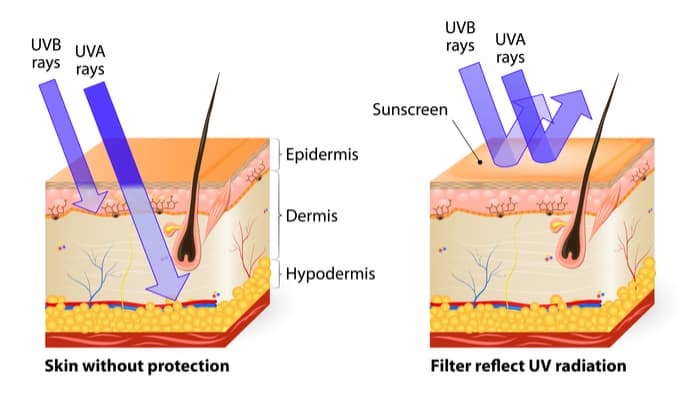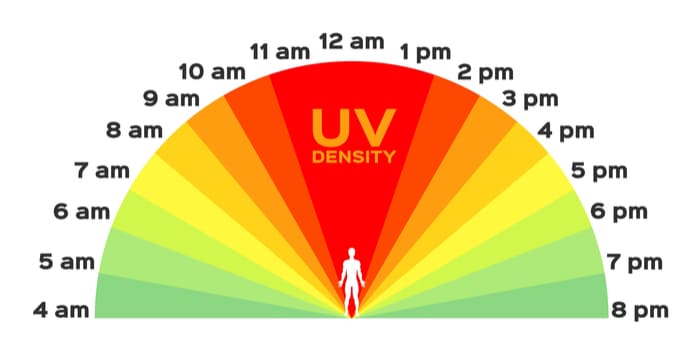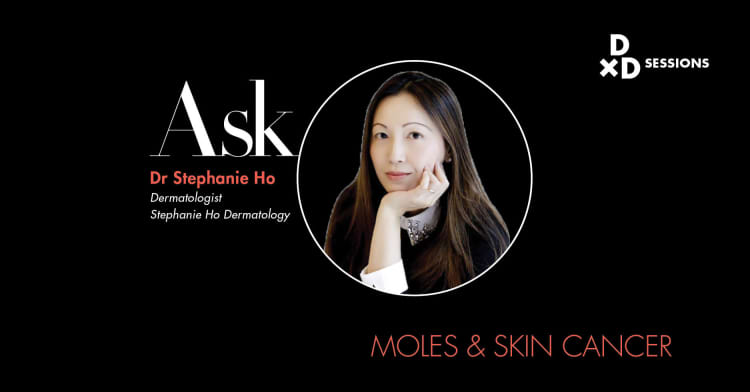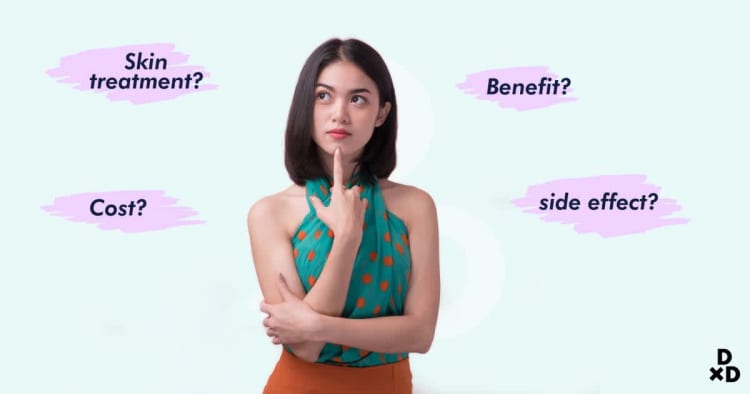All of us know that we should be using sunscreen to protect our skin from the harmful effects of the sun's rays. However, are we using it correctly?
There are so many different types of sunscreen out on the market, finding the right product can be challenging.
Dr Joanna Chan, an experienced aesthetic doctor recently answered a couple of questions from readers regarding sunscreen. Here are the important bits that you should know.
Sun protection is key to minimizing risks of skin cancer

In most people, the risk of skin cancer increases with increasing amounts of exposure to the sun. Thus, sun protection is crucial when it comes to minimising the risk of skin cancer.
A recent study in Australia has found that regular users of sunscreen reduce melanoma risk by 40% in young people, compared to those who rarely used sunscreen. [1]
Chemical vs. physical sunscreen

There are 2 main types of protective lotions – physical and chemical.
Physical sunscreen mainly works by sitting on of your skin to deflect UV radiation away from the skin. They usually contain zinc oxide or titanium dioxide.
Chemical sunscreens, absorb UV radiation after they are absorbed into the skin. The sunscreen then converts the rays into heat and releases them from the body. [2]
Chemical sunscreen has a higher chance of clogging pores

Chemical sunscreens are easier to find but they have a greater potential to clog pores and cause acne.
Physical sunscreen, tend not to clog pores but can be drying to the skin.
Use a broad-spectrum sunscreen with an SPF of at least 30

In order to fully protect your skin, Dr Joanna recommends that you use a broad-spectrum sunscreen with an SPF of 30 and above.
Only sunscreens marked “broad spectrum” protect against both types of damaging UV radiation – UVA and UVB.
SPF (sun protection factor) measures the amount of the sun's UV rays the sunscreen blocks. You need an SPF of at least 30 to block out about 97% of the sun’s rays. [3]
Hot-tropical climates require more application of sunscreen

If you live in a country like Singapore that's characterised by a hot and humid climate, it's best that you re-apply sunscreen every 2 hours, especially if you're out in the sun.
In addition, it's best to avoid the sun between 10:00 am - 4:00 pm. This is when the sun's rays are the most damaging. [4]
It's tricky to find a good sunscreen for acne prone skin

Acne-prone individuals may experience clogged pores and pimples despite using non-comedogenic products.
While it's true that non-comedogenic products are designed to minimise the risk of clogging pores, Dr Joanna explains that no product is completely safe.
Look out for the ingredients in each product

Here's a list that you might be able to use as a reference when choosing a product for your skin preferences (https://www.acne.org/comedogenic-list.html).
Still, it may not be possible to avoid all the ingredients as some are used as stabilisers. You should be able to use products with low concentrations of comedogenic ingredients with no issues.
What's the proper way to remove sunscreen?

Dr Joanna recommends cleaning off sunscreen at the end of the day with an oil-based cleanser. You can also use a make-up remover to remove the sunscreen completely.
Would you like to ask any related health questions?
You can Ask A Doctor right away, or view the complete list of Human Sessions.














